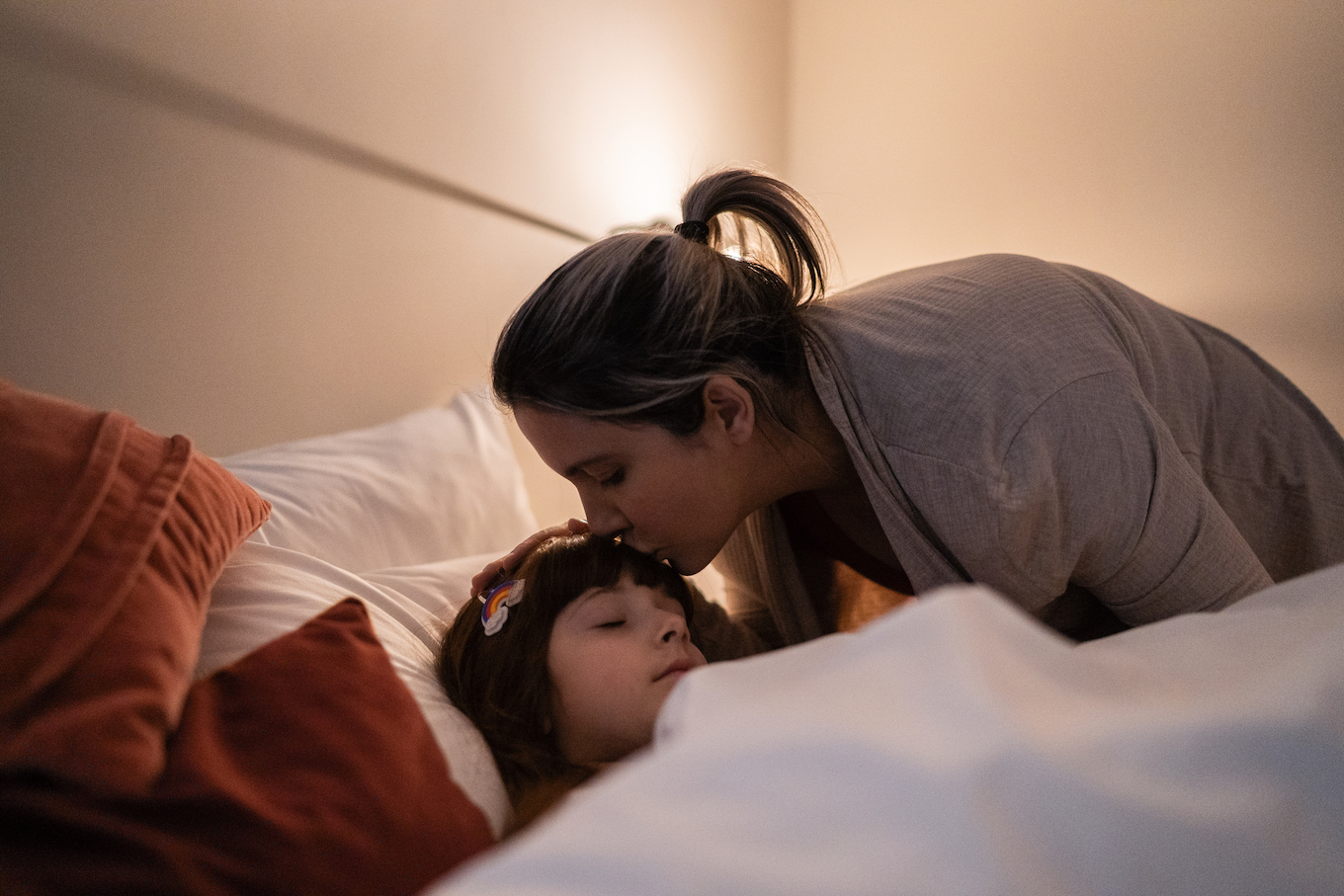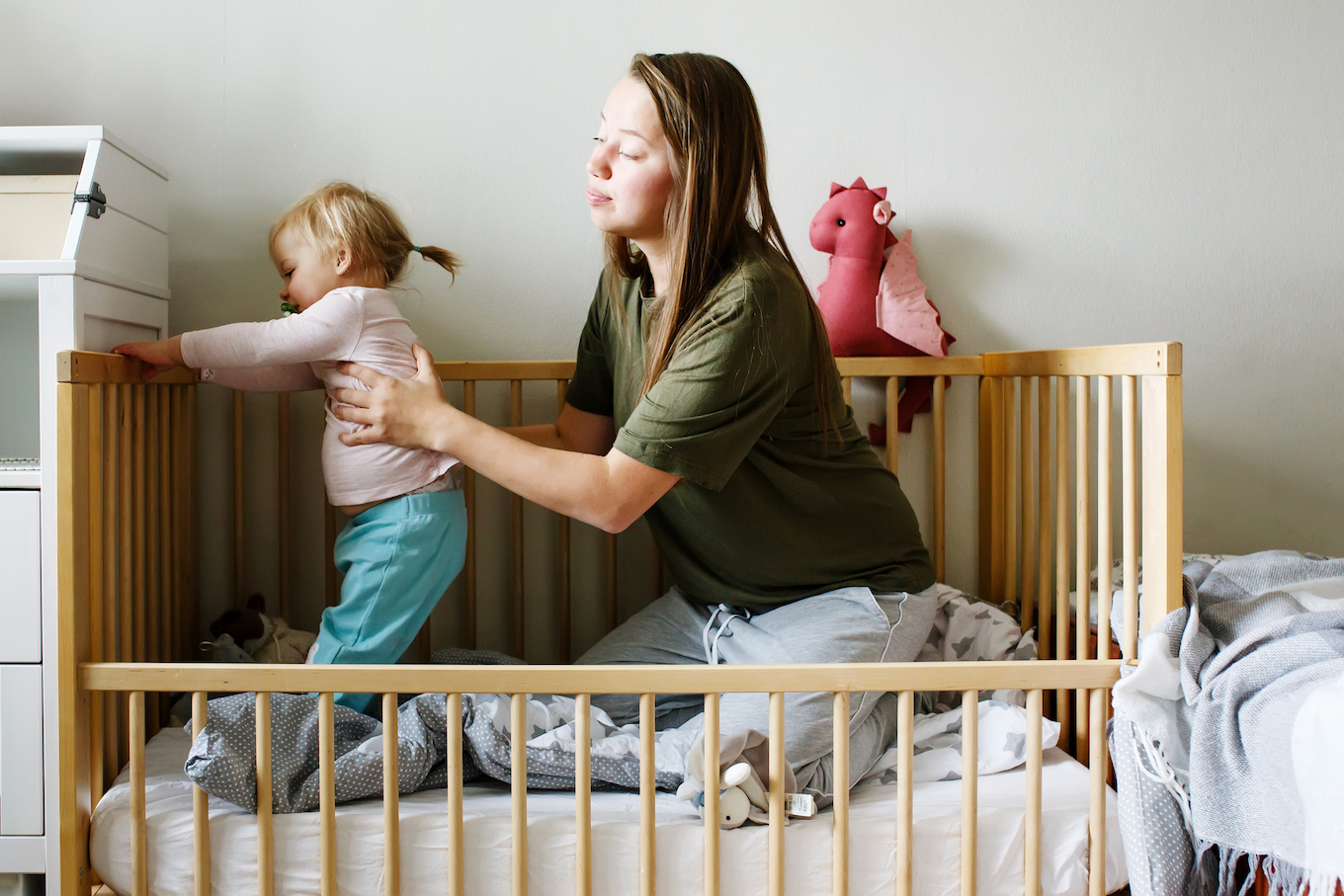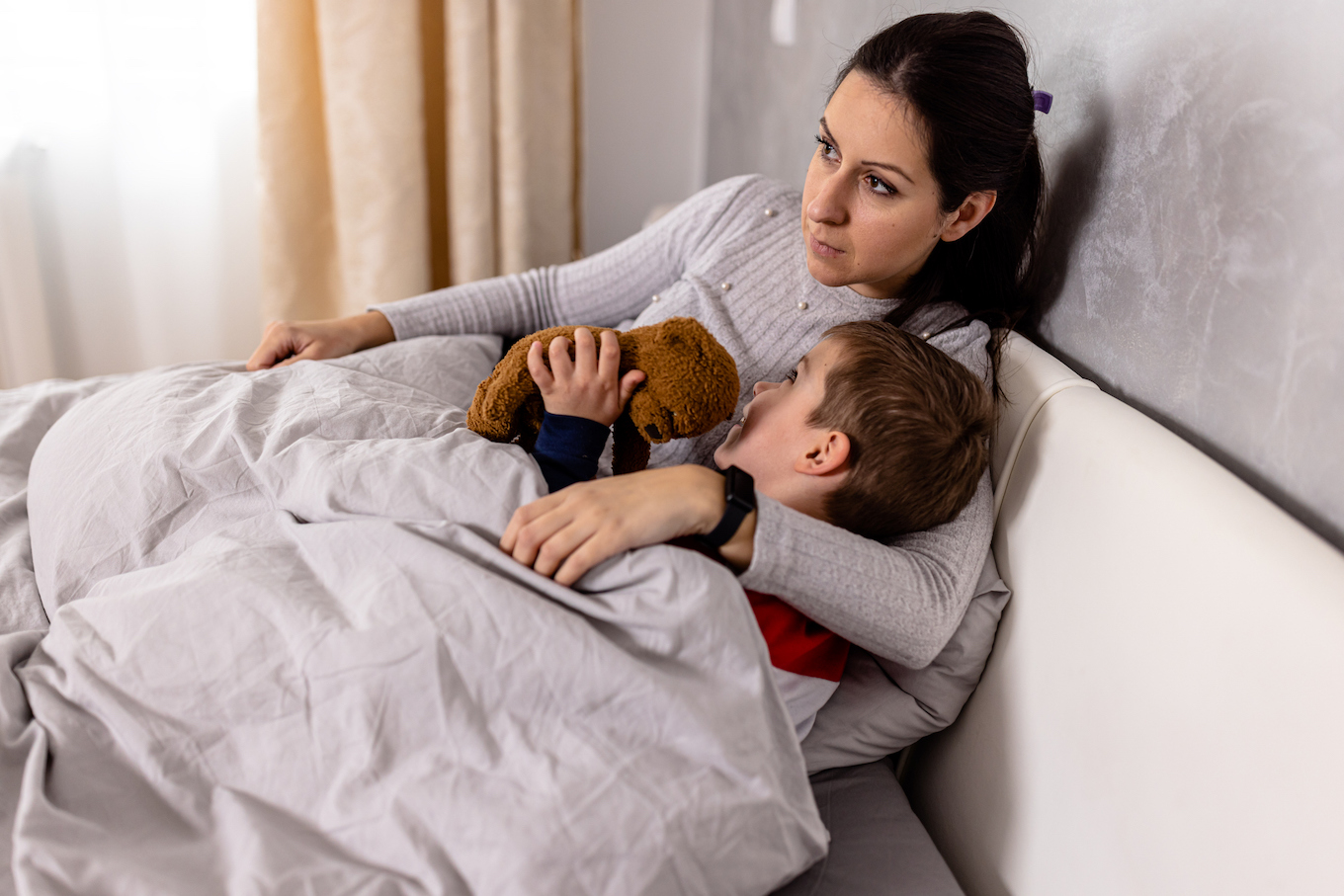
Getting a good night's sleep isn't just important for us to be able to function as parents, but it's also hugely imperative for children to get good rest. According to Harvard Medicine Magazine, proper sleep helps kids develop physically, mentally, and emotionally. For anyone with a toddler, however, we know that sleep regression can be too real. Fortunately, there are ways to solve bedtime woes and get little ones back to sleep — in their own beds — for the whole night.
CafeMom spoke with Jessica Berk, a certified toddler sleep consultant, to get her best tips on creating a bedtime routine that works for both parents and their toddlers. Berk runs Awesome Little Sleepers, which offers courses and coaching to help parents with toddlers and preschoolers all get better rest at night.
Read on to learn about Berk's best advice.
More from CafeMom: Spring Fever in the Classroom: Helping Kids Stay Focused Through the End of the Year
The bedtime routine doesn't need to be a long thing.

Berk says that a good bedtime routine can be around 15 minutes. It should include things that parents need their kids to do (such as brushing their teeth and putting on their pajamas) as well as things the kid themselves will enjoy like reading a bedtime book or singing a goodnight song. Just don't let those activities stretch all night.
Toddlers should be asleep by 8 p.m.

"Kids under 6 should be asleep by 8 o'clock," Berk recommends. And that's asleep. So a bedtime routine should start accordingly in advance so that children are actually asleep by 8 — not falling asleep by 8. If it takes a child half an hour from getting in bed to being truly out, start that routine early enough to account for that.
Factor in nap time.

For children who still need an afternoon nap, Berk recommends only letting them nap for an hour and waking them up by at least 3 p.m. so as not to disturb their bedtime. "Once it is time for kids to drop the nap, which is probably anywhere between 3-1/2 and 4-1/2 years old, then move bedtime earlier to kind of make up for some of that lost sleep," Berk suggests.
More from CafeMom: To the Working Moms Who Feel Like They're Failing Every. Single. Day.
Toddlers need a lot of sleep.

How much sleep does a toddler need? Nearly half a day. Berk says the recommended amount is 10 to 12 hours per night, and children should be fully asleep during that time. If kids are waking up midway through the 10 hours or a few hours too early in the morning, the current bedtime routine may not be working well enough.
Know when it's time to shift the routine.

There's no exact age where parents need to change around a child's bedtime routine. Berk says if it's working as is and everyone is getting good sleep, that's all that matters.
But if children start waking up a lot in the middle of the night, trying to sleep in their parents' bed, and no one is getting enough rest, it's probably time to shift things. One noticeable time this may happen is when a child transitions from a crib to a big kid bed that allows more freedom.
"Kids have the ability to fall asleep independently and sleep through the night without really needing any help by the time they're like 5 or 6 months old," Berk says. "But really any time at any age that your child's sleep habits start to fall off or maybe if they were never developed, that's the right time to start [a new routine]."
Focus on the benefits.

It's easy to frame a child's sleep habits from a parent's point of view. If our child isn't sleeping through the night, then we're not getting enough sleep and we're more irritable and unable to focus, etc. But Berk reminds us that it's important to frame the child's need for rest in the equation as well.
"I really want you to focus on the benefit to your kids, because I find that if parents think that they're … doing something like 'selfish,' then it could be a tough process and they may not follow through if they think it's just for their [own] benefit."
It's not selfish to want our kids to sleep through the night. It's actually key to healthy childhood development.
Involve the child in building the routine.

"A good bedtime routine, I say, is one that your kid loves," Berk says. "We involve the child in setting up a routine that they actually enjoy. And when you give kids some choices and a sense of control over the process, it really helps them go along with it."
If a child likes to read books, build in time for a couple of stories. Or if the little ones likes to tell their parents about their day, work that in. If toddlers have a sleep song they like to sing, make time for that.
Bedtime doesn't have to be a fight, and it can be something a kid even perhaps looks forward to.
Learn how to adapt to stall tactics.

It's good to give kids a sense of control at bedtime, but we can't let them run amok, either. Berk recommends adapting the routine if a child tries asking for extras to delay sleeping, such as if they suddenly want a third book at bedtime.
"I would say, 'We only read two books as part of our bedtime routine, but every night it seems like you're asking for a third book,'" Berk says. "Maybe we can add in a third book, but maybe we take away singing the song. Or we trade something out … So not just saying no, but saying kind of like, 'Yes, but' or 'Yes, tomorrow.'"
Kids pick up on parents' reactions.

Kids are super intuitive, and if they can sense that a parent is frustrated or something, it's going to make bedtime even harder. "As parents, we can only control our reaction and our emotions," Berk says.
She thinks it's important to go into bedtime with a positive attitude and to hold firm to the routine, because kids can also sense that if we give in to one of their extra requests we may give in to more. We just have to hold firm without getting overly upset and making the process more difficult.
Make kids feel heard.

Ultimately, Berk says a good bedtime routine should make a child feel heard. "They're just trying to assert some control over their little lives. They're always told what to do, where to go, what to eat, when, what to wear," she reminds us.
Giving children a sense of power when it comes to what happens at bedtime can make them feel more in charge and more willing to execute on the routine. That's why sitting down with a child and determining which activities they want to close out the night with can be so important.
Don't play into bedtime fears.

It's common for some children to voice fear as a reason why they can't sleep alone in their own beds at night, but Berk cautions parents not to play into these fears too much and accidentally validate them.
"Let's say your kid is scared of … a monster under the bed. Well if you say, 'I got this monster spray and we're gonna spray it around and then Mommy will sit with you to keep you safe until you fall asleep.' Well that's way different than saying there's no such thing as monsters," Berk says.
Instead, she recommends making light of the fear, perhaps by having a child read a funny book about monsters or drawing a silly picture of one.
Don't stress about travel.

Berk says lots of times parents won't want to start a new bedtime routine if they have a vacation coming up because they think that will throw chaos into everything, but she says that travel doesn't permanently disrupt things as much as we may think.
"It's like any habit. Let's say you're a coffee drinker and you have coffee every morning. Well let's say you go on a camping trip … and they don't have coffee. Well, OK, you don't have coffee for those two mornings, but I promise when you get home, you're gonna go right back to your coffee habit," she explains.
"It's the same thing with sleep habits. Doing it when you're at home helps it become rote," she adds. "It helps you build that kind of muscle memory. … kids who have really good sleep habits can actually be pretty flexible because they have a bank of good sleep to fall back on."
It's OK to use rewards.

Berk recommends teasing a reward that the child will get in the morning if the little ones sticks to the bedtime routine. "Kids will do anything for an M&M," Berk says with a laugh. "So if you can use that to help jumpstart some new good behaviors, it's not something you're gonna do forever."
Other rewards that can be used include small toys or even just words of praise – just something to encourage the new bedtime transition.
Focus on the small wins.

When it comes to using rewards, Berk says parents should focus on small wins. It's a big transition to get a kid who's been coming into the parents' bed every night for six months to all of a sudden have to stay in their own bed all night.
"Let's find one tiny, tiny, tiny thing that we can view as like a little win and then build on that. Because if you don't do it that way, then your kid just feels like a failure every morning," she says.
Change doesn't happen overnight.

Routines become habits over time, but it does take time. Berk says even her courses are designed to see results in about three weeks — not necessarily three days. For parents who don't see overnight success, just stick with it. Eventually things should get easier and everyone will get to sleep through the night.
Try a free sleep masterclass.

For parents who are still struggling to get their child to sleep in their own bed through the night, Berk does offer a free toddler sleep masterclass on her website. It could be a good place to start for those who have tried sticking with a routine that's not working or who perhaps were never able to get a good routine going in the first place.




